Rivers
Groundwater management in a coastal aquifer in Krishna River Delta – A paper in Current Science
Posted on 10 May, 2011 08:03 AMGroundwater conditions in the multi-aquifer system in the delta, were studied through an integrated approach using hydrochemical, hydrogeological and isotopic techniques. This study was taken up because of the reported seawater intrusion into the groundwater system of this agriculturally rich region.
Polavaram fraud - The Polavaram dam on the Godavari could displace 400,000 people and submerge nearly 4,000 hectares of forest land - Article from Down To Earth
Posted on 06 May, 2011 08:33 PMMost of the people threatened to be displaced cannot be relocated until their rights over forestland are recognized under the Forest Rights Act. How did the Andhra Pradesh government meet this immense challenge? It quietly told the Union environment and forests ministry that all claims have been settled.
The ministry gave forest clearance to the project last year. Now over 50 villages have written to the ministry, saying their forest rights have not been settled. Richard Mahapatra visited the villages and found the state had indeed lied.
Following similar complaints, the ministry had scrapped Vedanta’s proposal to mine Niyamgiri hills and withheld forest clearance to the POSCO steel plant in Odisha. Will it apply the same yardstick to Polavaram?
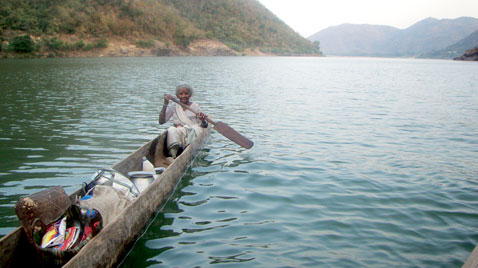 Residents of Teladibbalu did not know they had forest rights. The village is in the dam’s submergence zone and accessible only by boat. (Photo: G Srinivas).
Residents of Teladibbalu did not know they had forest rights. The village is in the dam’s submergence zone and accessible only by boat. (Photo: G Srinivas).
Ganga water quality trend - A report by Central Pollution Control Board (2009)
Posted on 30 Apr, 2011 05:39 PM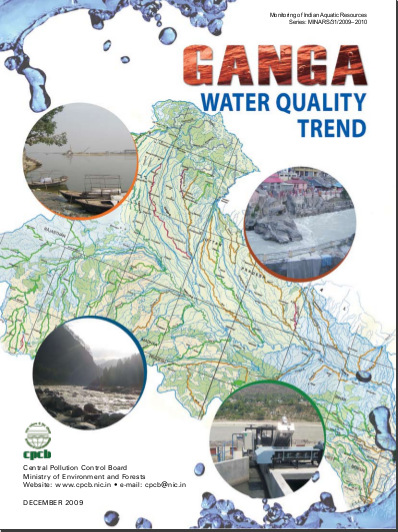 The data has been collected over a period of many years from 39 water quality monitoring stations along the main river and 102 stations on its tributaries which were setup in 2008/09.
The data has been collected over a period of many years from 39 water quality monitoring stations along the main river and 102 stations on its tributaries which were setup in 2008/09.
The study focuses on the parameters for dissolved oxygen, (DO), biochemical oxygen demand (BOD) and faecal coliforms (FC) as these indicate the biological health of the river. The period of study for the river Ganga is 1999-2008. The study finds that most of the water quality parameters studied do not meet the standards.
The Gharial - Our river guardian - A factsheet prepared by the Ministry of Environment and Forests
Posted on 28 Apr, 2011 04:35 PMIt was found in Pakistan, Bangladesh, Burma and Bhutan, but is now extinct in these countries. Today, it is seen in a few places in Nepal. In India the major population of Gharials is found in the Girwa and Chambal rivers. It faces many threats to its survival which include fishing, linking of rivers, large irrigation canals etc.
"In Search of Yamuna: Reflections on a River Lost" - A recent book as an ode to rivers
Posted on 27 Apr, 2011 02:26 PMAbout the book
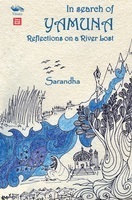 In the present mood of transience and conflict, amidst the emerging riverfront politics, these communities seem to be caught in the eye of the storm.
In the present mood of transience and conflict, amidst the emerging riverfront politics, these communities seem to be caught in the eye of the storm.
Dwarekeshwar river basin of West Bengal : A unique combination of flash flood zone, monsoonal flood zone & tidal zone
Posted on 27 Apr, 2011 12:59 PM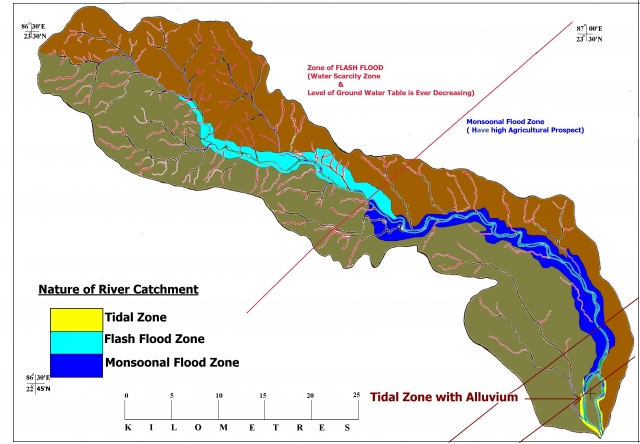 In India, at national level when all the planners are saying about the water grid, river linking project, i
In India, at national level when all the planners are saying about the water grid, river linking project, i
An assessment of crop water productivity in the Indus and Ganges river basins: Current status and scope for improvement – A research report by IWMI
Posted on 20 Apr, 2011 06:43 PM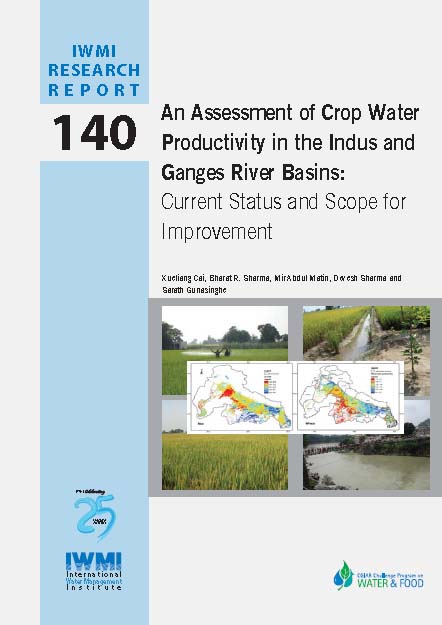 This approach is based on the integration of readily available remote sensing, national crop productivity and land use statistics and weather data.
This approach is based on the integration of readily available remote sensing, national crop productivity and land use statistics and weather data.
Resistance against the Polavaram dam - An EPW article
Posted on 19 Apr, 2011 11:02 PM
This EPW paper studies the various forms of resistance against the construction of Polavaram dam, and notes that the main feature of the struggles has been the involvement of people’s organisations due to the failure of traditional as well as statutory bodies, representatives and regional leadership of mainstream political parties.
The effects of agricultural water and landholdings to rural livelihoods in Indo-Gangetic basin – Research analysis by IWMI and ICAR with an emphasis on Bihar
Posted on 18 Apr, 2011 11:56 PM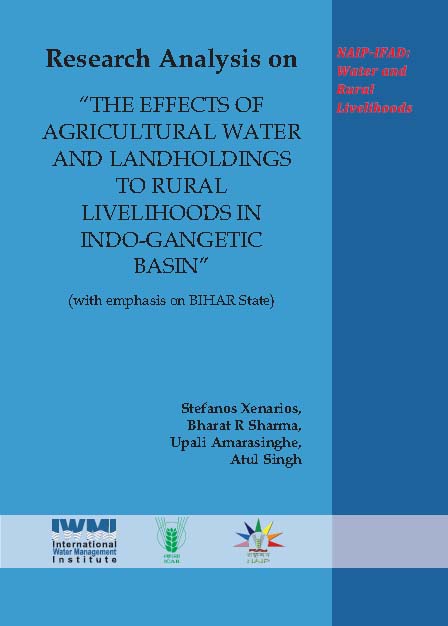 The current research analysis by International Water Management Institute (IWMI) in cooperation with ICAR Resear
The current research analysis by International Water Management Institute (IWMI) in cooperation with ICAR Resear
Vedanta’s red mud pond leaks into Vamsadhara river, Lanjigarh, Orissa - A Down To Earth report
Posted on 18 Apr, 2011 05:23 PMThis happened following a thunder burst on April 5.
According to Mahammad Ashlam of KBK Samachar, the local news agency, the downpour lasted 45 minutes and resulted in a huge run-off of the toxic waste into nearby water bodies from a crack in the pond wall of the one-million-tone refinery. Red mud or bauxite residue is a waste product of the alumina manufacturing process.